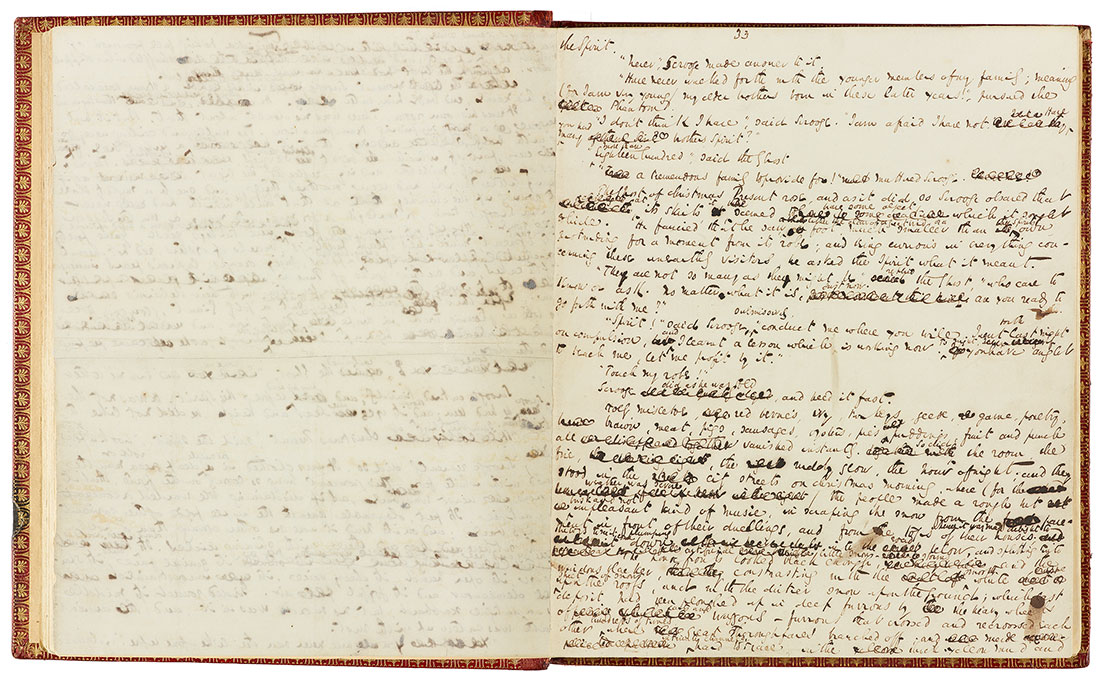
A Christmas Carol in Prose : Being a Ghost Story of Christmas.
Autograph manuscript signed, December 1843
Page 33
Purchased by Pierpont Morgan before 1900
33
the Spirit.
"Never," Scrooge made answer to it.
"Have never walked forth with the younger members of my family; meaning (for I am very young) my elder brothers born in these later years!" pursued the Phantom.
"I don't think I have," said Scrooge. "I am afraid I have not. Have you had many brothers, Spirit?"
"More than eighteen hundred," said the Ghost.
"A tremendous family to provide for!" muttered Scrooge.
The Ghost of Christmas Present rose, and as it did so Scrooge observed that at its skirts it seemed to have some object which it sought to hide. He fancied that he saw either the claw of a great bird or a foot much smaller than the Spirit's own, protruding for a moment from its robes; and being curious in everything concerning these unearthly visitors, he asked the Spirit what it meant.
"They are not so many as they might be," replied the Ghost, "who care to know or ask. No matter what it is, just now. Are you ready to go forth with me?"
"Spirit!" said Scrooge submissively, "conduct me where you will. I went forth last night on compulsion, and I learnt a lesson which is working now. Tonight, if you have aught to teach me, let me profit by it."
"Touch my robe!"
Scrooge did as he was told, and held it fast.
Holly, mistletoe, red berries, ivy, turkeys, geese, game, poultry, brawn, meat, pigs, sausages, oysters, pies, puddings, fruit and punch all vanished instantly. So did the room, the fire, the ruddy glow, the hour of night; and they stood in the city streets on Christmas morning, where (for the weather was severe) the people made a rough but brisk and not unpleasant kind of music, in scraping the snow from the pavement in front of their dwellings, and from the tops of their houses; whence it was mad delight to the boys to see it come plumping down into the road below, and splitting into artificial little snow-storms.
The house fronts looked black enough, and the windows blacker, contrasting with the smooth white sheet of snow upon the roofs, and with the dirtier snow upon the ground; which last deposit had been ploughed up in deep furrows by the heavy wheels of carts and waggons—furrows that crossed and recrossed each other hundreds of times where great thoroughfares branched off; and made intricate channels, hard to trace, in the thick yellow mud and
